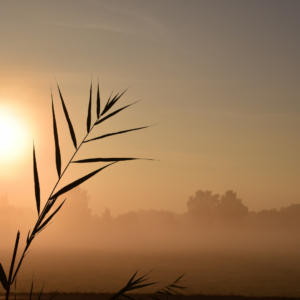Camille Dager, Chief Communication Officer for MC USA, shares about the National Day of Mourning, also known as Unthanksgiving Day.
 Camille Dager is the Chief Communication Officer for MC USA. She attends Zion Mennonite Church in Souderton, Pa., a congregation in Mosaic Mennonite Conference.
Camille Dager is the Chief Communication Officer for MC USA. She attends Zion Mennonite Church in Souderton, Pa., a congregation in Mosaic Mennonite Conference.
______________________________
For many of our Native American brothers and sisters, Thanksgiving Day is a painful reminder of the genocide of millions of Native people, the theft of Native lands and the erasure of Native cultures through harmful practices, such as the U.S. Indian boarding school policy.
 In her sermon this past week, Susan Hart, MC USA Executive Board member and pastor of Koinonia Indian Mennonite Church in Clinton, Oklahoma, spoke of some of the dark events connected to Thanksgiving that harmed the Cheyenne and Arapaho peoples:
In her sermon this past week, Susan Hart, MC USA Executive Board member and pastor of Koinonia Indian Mennonite Church in Clinton, Oklahoma, spoke of some of the dark events connected to Thanksgiving that harmed the Cheyenne and Arapaho peoples:
On Nov. 29, 1864 – one year after Abraham Lincoln made Thanksgiving a national holiday – volunteer soldiers attacked an encampment of Cheyenne and Arapaho people in what’s now known as the Sand Creek Massacre (Colorado), killing 230 Native people, more than half of which were women and children.
On Nov. 27, 1868, Lt. Col. George Armstrong Custer’s 7th U.S. Cavalry attacked Chief Black Kettle’s Southern Cheyenne camp on the Washita River (Cheyenne, Oklahoma), playing an Irish jig as they killed and kidnapped dozens of Cheyenne people, even slaughtering their ponies and horses.
In 1875, the army imprisoned 74 Cheyenne, Kiowa, Comanche, Arapaho and Caddo Indians – some of whom were survivors of the Sand Creek Massacre and others who were arbitrarily selected – and transported them 165 miles to Fort Marion in Florida, where they were confined for three years and forced to assimilate to Western culture.
Hart emphasized that, in the face of these atrocities, Native people have demonstrated the power of forgiveness, resilience and survival.
Given the collective trauma of these events, it is not surprising that many Native people do not celebrate the arrival of the pilgrims and the romanticized story of the first Thanksgiving.
In fact, in 1970, a group of Native people in New England countered the traditional Thanksgiving celebration by observing a National Day of Mourning as a protest against the ongoing oppression of Indigenous people. According to the United American Indians of New England (UAINE) website, “Participants in National Day of Mourning honor Indigenous ancestors and Native resilience. It is a day of remembrance and spiritual connection, as well as a protest against the racism and oppression that Indigenous people continue to experience worldwide.”
Some also refer to it as “Unthanksgiving Day.”
The UAINE suggests several ways that allies can stand in solidarity with our Native brothers and sisters:
- Help to spread the word about the National Day of Mourning on social media.
- Use Thanksgiving Day as a ‘teachable moment’ and educate family and friends.
- Help to champion Indigenous voices by supporting other Indigenous struggles.
- Support Indigenous climate activists and landback efforts.
Other ways to carry this message beyond this week:
- Learn about the history of Indigenous peoples, their contributions and the challenges they face today. Share this knowledge with others.
- Join other Anabaptists in learning about anti-racism, using MC USA’s anti-racism resources or by attending a Roots of Justice training or educational webinar.
- Get involved with the Coalition to Dismantle the Doctrine of Discovery, which calls the church to action to address the extinction, enslavement, and extraction done in the name of Christ on Indigenous lands.
- Support MC USA’s Native Mennonite Ministries constituency group by sending a check payable to MC USA, noting NMM in the memo line, and mail to: MC USA, 718 N. Main Street, Newton, KS 67114.
On this National Day of Mourning, may we remember the many who were lost, harmed and driven from their homes, and offer prayers of strength and resilience for our Native brothers and sisters who carry on their legacy.

